Rural food sovereignty and urban food security in the Great Global confinement
DOI:
https://doi.org/10.35305/23626097v8i14.306Keywords:
food security, food sovereignty, countryside, city, COVID-19Abstract
The Great Global confinement is considered to be the first universal event that combined -throughout its development- a variety of radical everyday life transformations, specifically those associated with food. It has brought back to the center of the debate the confrontation between the rural food sovereignty which was established in 1996 and food security policies. This has shown that the civilizational crisis mankind is experiencing is more serious than we think. Uncertainty has become a widespread suffering. The objective of the study is to explain the ways in which the confrontation between rural food sovereignty and urban food security is maintained in the context of the Great World Confinement. Thus, on one hand, the analysis deals with the context enabling the understanding of some of the mutations between the forbidden and the ordered in the rural-urban binomial; they are observed in the dispute for public spaces as well as in the incessant search for the countryside appropriation in Mexico. On the other, it focuses on the space which has to ensure not only the reproduction of life but also the functioning of the urban-supply center.
Downloads
Metrics
References
ACNUR. (2020). Muertes por hambre en el mundo | eACNUR [Organismo Intergubernamental]. ACNUR. Recuperado de https://eacnur.org/es/actualidad/noticias/muertes-por-hambre-en-el-mundo
Bartra, A. (2008). Campesindios. Aproximaciones a los campesinos de un continente colonizado. Boletín de Antropología Americana, 44, 5-24.
CDMX (2021, enero 19). Cumplen restaurantes con medidas sanitarias. Secretaría de Gobierno de la CDMX. Recuperado de https://www.secgob.cdmx.gob.mx/comunicacion/nota/06-21
Daniels, P., El Baghdadi, O., Desha, C., y Matthews, T. (2020). Evaluating net community benefits of integrating nature within cities. Sustainable Earth, 3(1), 12. doi:10.1186/s42055-020-00025-2
De la Vega-Leinert, A. C. (2019). Ciudades y consumo de bienes agrícolas. Transformaciones del consumo alimentario en el contexto de cambios en el comercio agrícola y las cadenas comerciales. Estudios Demográficos y Urbanos, 34(1 (100)), 213-220.
Devereux, S., Béné, C., y Hoddinott, J. (2020). Conceptualising COVID-19’s impacts on household food security. Food Security, 12(4), 769-772. doi:10.1007/s12571-020-01085-0
ENERDATA. (2021). Anuario estadístico mundial de energía 2020. Anuario Estadístico mundial de Energía. Recuperado de https://datos.enerdata.net/
FAO. (2019). Marco de la FAO para la Agenda Alimentaria Urbana. FAO. doi:10.4060/ca3151es
FAO. (s. f.). Plan para la seguridad alimentaria, nutrición y erradicación del hambre de la CELAC 2025. FAO, CEPAL, ALADI. Recuperado de http://www.fao.org/3/a-i4493s.pdf
FAO, FIDA, OMS, PMA, Y UNICEF. (2020). Versión resumida de El estado de la seguridad alimentaria y la nutrición en el mundo 2020. Transformación de los sistemas alimentarios para que promuevan dietas asequibles y saludables. doi: 10.4060/ca9699es
Fernández Somoano, M. B. F. (2002). Soberanía y seguridad alimentaria. Ábaco, 31, 79-86.
Foucault, M. (2014). Seguridad, Territorio, Población. Buenos Aires, Argentina: FCE.
Galtés, M. (2013, julio 6). La revolución tecnológica industrial [Periódico]. La Vanguardia. Recuperado de https://www.lavanguardia.com/economia/20130707/54377301482/la-revolucion-tecnologica-industrial.html
González Casanova, P. (2005). Las nuevas ciencias y las humanidades. De la Academia a la Política. Barcelona, España: Anthropos, UNAM IIS.
Gregoire, R. (1963). Los problemas de la tecnocracia y el papel de los expertos. Revista de estudios políticos, 131, 139-172.
Huambachano, M. A. (2019). Indigenous food sovereignty: Reclaiming food as sacred medicine in Aotearoa New Zealand and Peru. New Zealand Journal of Ecology, 43(3), 1-6. doi: 10.2307/26841826
Husain, A., Sandström, S., Groder, J., y Pallanch, C. (2020). COVID-19: Potential impact on the world’s poorest people. A WFP analysis of the economic and food security implications of the pandemic. WFP. Recuperado de https://docs.wfp.org/api/documents/WFP-0000114205/download/?_ga=2.241337546.952775517.1586900153-341597442.1584735263
INDDEX. (2018). Data4Diets: Building Blocks for Diet-related Food Security Analysis. International Dietary Data Expansion Project. Disponible en: https://inddex.nutrition.tufts.edu/data4diets/indicator/food-insecurity-experience-scale-fies
Lefebvre, H. (1978). De lo rural a lo urbano. Barcelona, España. Ediciones Península.
Mumford, L. (2015). Historia de las utopías. La Rioja, España: Pepitas de calabaza ed.
ONU. (2015, septiembre 25). Objetivos y metas de desarrollo sostenible – Desarrollo Sostenible. Recuperado de https://www.un.org/sustainabledevelopment/es/objetivos-de-desarrollo-sostenible/
Ornelas, R., Bartra, A., Ceceña, A., Esteva, G, y Holloway, J. (2013). Crisis Civilizatoria y superación del capitalismo. CDMX, México: UNAM IIEc, Aviso de Incendio.
Romero, D., Stahre, J., Wuest, T., Noran, O., Bernus, P., Fast-Berglund, Å., y Gorecky, D. (2016). Towards an operator 4.0 Tipology: A Human-Centric perspective on the fourth industrial Revolution Technologies. International Conference on Computers and Industrial Engineering (CIE46) Proceedings, 11.
Taylor, J. R. (2020). Modeling the Potential Productivity of Urban Agriculture and Its Impacts on Soil Quality Through Experimental Research on Scale-Appropriate Systems. Frontiers in Sustainable Food Systems, 4. doi: 10.3389/fsufs.2020.00089
UE. (2021). Normalización en Europa—Requisitos técnicos—Normas armonizadas—Marcado CE. Your Europe. Recuperado de https://europa.eu/youreurope/business/product-requirements/standards/standards-in-europe/index_es.htm
Ugarteche, Ó., y Ocampo, A. (2019, diciembre 23). La economía mundial: Perspectivas económicas para 2020 | Observatorio Económico Latinoamericano OBELA [Académica]. OBELA | Observatorio Económico Latinoamericano. Recuperado de http://obela.org/analisis/la-economia-mundial-perspectivas-economicas-2020
Vanbergen, A. J., Aizen, M. A., Cordeau, S., Garibaldi, L. A., Garratt, M. P. D., Kovács-Hostyánszki, A., Lecuyer, L., Ngo, H. T., Potts, S. G., Settele, J., Skrimizea, E., & Young, J. C. (2020). Transformation of agricultural landscapes in the Anthropocene: Nature’s contributions to people, agriculture and food security. Advances in Ecological Research, 66, 193-253. doi: 10.1016/bs.aecr.2020.08.002
Zárate, B. J. (2012). Catographer. Archivo personal, Ciudad de México, México.
Zárate, B. J. (2013). Catographer, Archivo personal, Ciudad de México, México.
Zárate, B. J. (2019). Catographer, Archivo personal, Ciudad de México, México.
Zárate, B. J. (2020). Catographer, Archivo personal, Ciudad de México, México.
Žižek, S. (2018). Acontecimiento. Madrid, España: Sexto Piso.
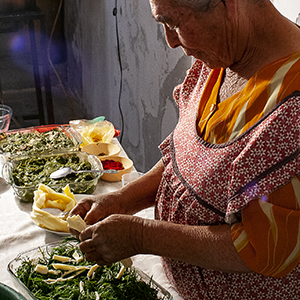
Published
How to Cite
Issue
Section
License
Open access policy
A&P Continuidad is a non-profit and open access publication. According to Mexico Declaration on Cultural Policies, the journal distribution is submitted to Creative Commons Attribution-Noncommercial-ShareAlike 4.0 International Public License (CC BY-NC-SA). “Neither the commercial use of the original work nor that of the possible derivative works are allowed. The distribution of derivative works should be submitted to the license regulating the original work. This license is not free.”
A&P Continuidad authorizes the partial or full reproduction of texts and graphs provided that the source is cited. Authors are exclusively responsible for the criteria expressed in the articles which do not necessarily reflect the opinion of the Editorial Committee or that of the Direction Board. The copyright of the published articles pertains to their authors or publishers.
Transfer of rights
The acceptance of an article to be published implies the author’s transfer of rights to the journal. Authors continue to have the right to use the material in future books or publications, approve or veto the republication of their works as well as the rights related to patents or other rights. Transfer of rights form may be downloaded here.



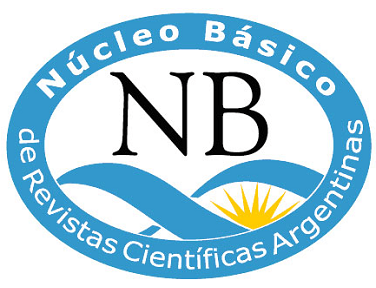


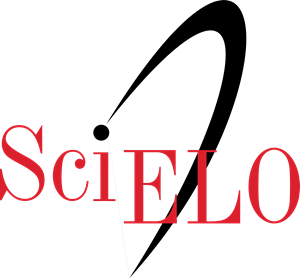



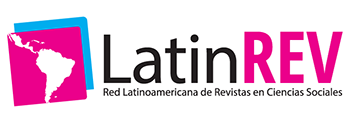

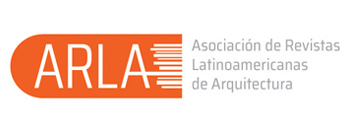
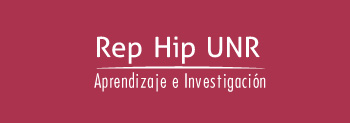


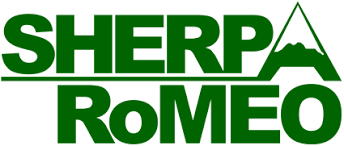
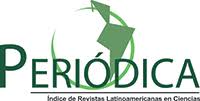








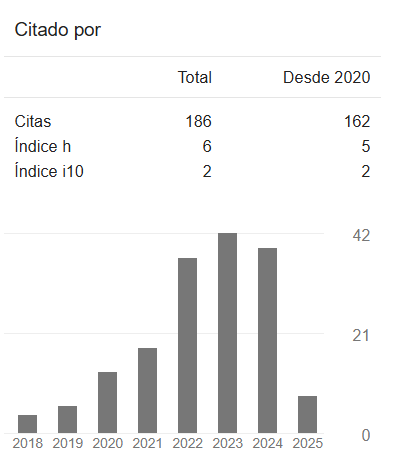


 This OJS site and its metadata are under a
This OJS site and its metadata are under a 

